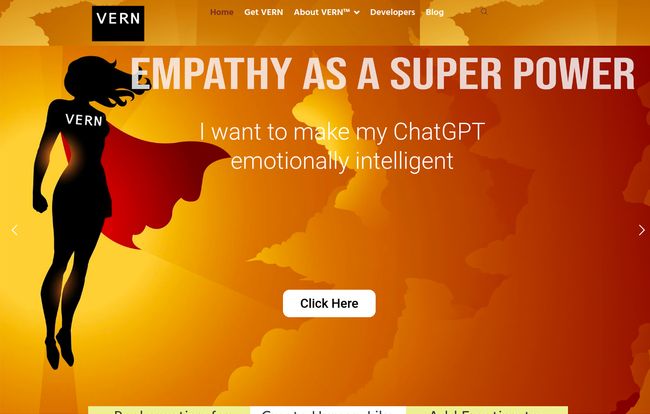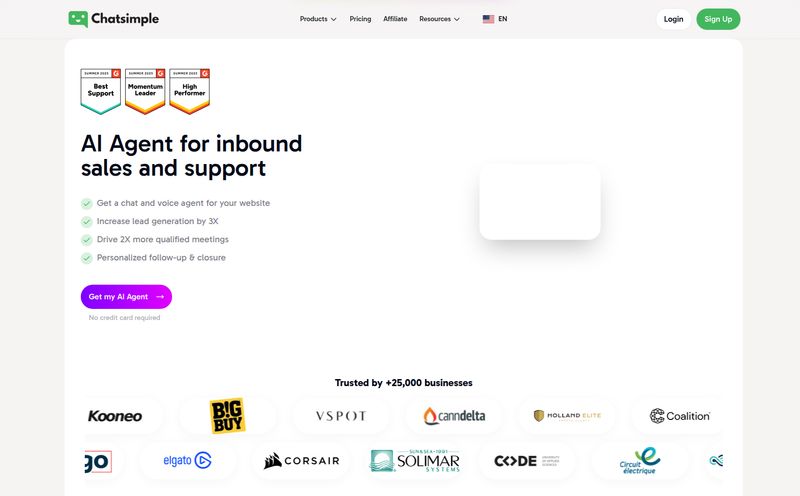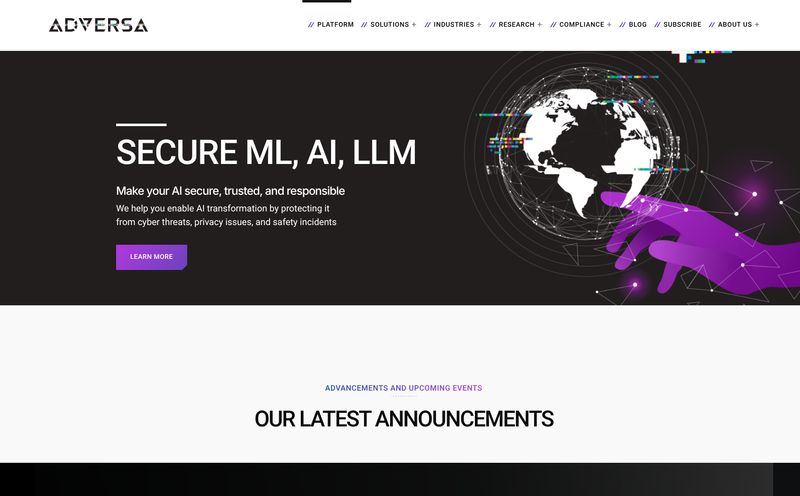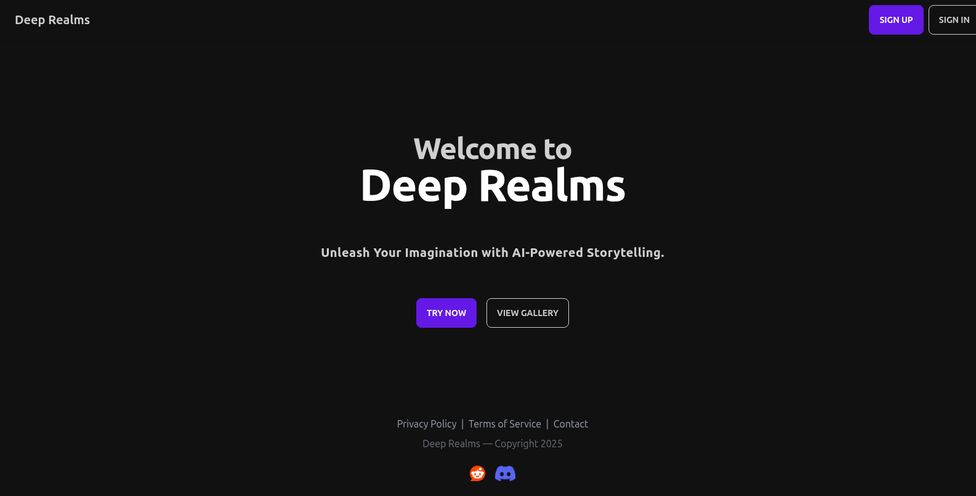We’ve all been there, haven’t we? Stuck in a chatbot loop from digital hell. You’re trying to explain a problem, you’re getting frustrated, and the bot on the other end keeps cheerfully saying, “I’m sorry, I didn’t understand that. Can you rephrase?” It's the digital equivalent of talking to a brick wall. A smiling, infuriatingly polite brick wall.
For years, we in the SEO and digital marketing space have been obsessed with optimizing everything for efficiency. Clicks, conversions, time-on-page. But in that race for robotic perfection, we sometimes forget the human on the other side of the screen. That human has feelings. And most of our automated systems are completely, utterly blind to them.
That’s the problem that a company called VERN AI is trying to solve. Their tagline is “Empathy as a Super Power,” and I have to admit, that got my attention. It’s a bold claim. So, I decided to take a look under the hood to see if this is just more marketing fluff or if there’s some real fire behind the smoke.
So What Is VERN AI, Really?
At its core, VERN AI is an emotion recognition platform. Think of it as a pair of emotional glasses for your existing AI tools. It’s an API that you can plug into your chatbot, your CRM, your analytics software, or even voice bots. Its job is to read or listen to a piece of text and figure out the emotional current running through it. Specifically, it's looking for the big four: Anger, Sadness, Love, and Fear.
It doesn't just say “yep, this person is mad.” It provides a confidence score, a percentage that tells your system how angry or sad the person likely is. This isn't just about sentiment analysis (positive/negative/neutral), which has been around forever. This is about emotional nuance. It’s the difference between a customer being slightly annoyed versus being on the verge of a rage-quit.
The Staggering Price of Robotic Conversations
Why does this even matter? Because emotionally-deaf interactions cost businesses a fortune. I’ve seen it happen countless times. A customer has a legitimate issue, the automated system fails them, they feel unheard, and they leave. Worse, they go to Twitter or a review site and tell everyone about their terrible experience. The folks at VERN put it bluntly on their site: this is the difference between retention and churn.
A negative moment doesn't have to be the end of a customer relationship. In fact, handling a complaint well can create a customer for life. But you can't handle it well if you don't even recognize that the customer is upset in the first place. That’s where the business case for something like VERN AI becomes crystal clear. It’s about turning those potential disaster moments into opportunities for loyalty.
Seeing VERN in Action is an Eye-Opener
The most compelling part of their website for me was the side-by-side demonstration of a chatbot conversation, one with VERN and one without. It’s so simple, yet so powerful.
In the “Without VERN” scenario, a user types: “I’ve been a customer for 5 years and my payment failed again. I’m so upset I will defend to the death your ability to fix it.”
The standard, tone-deaf bot replies: “Welcome to the store’s business in real time.” It’s… painful. It’s a complete non-sequitur that shows the bot has zero comprehension of the user's emotional state.

Visit VERN AI
Now, let's replay that with VERN enabled. The system analyzes the user’s text and immediately flags high scores for Anger and Sadness. Armed with this context, the AI’s response is completely different:
“I’m so sorry you’re dealing with this, and I can definitely help with that. Since you’ve been a loyal customer for so long, I will give you a credit and figure this out for you.”
See the difference? It's night and day. The second response acknowledges the user's frustration, validates their history with the company, and offers a solution. That’s how you save a customer.
Where Can You Actually Use This Technology?
Okay, so it’s cool tech, but where does it fit into a real business strategy? The applications are actually pretty broad, and some of them are quite profound.
Revamping Customer Support and Sales
This is the most obvious one. Integrating VERN into your live chat or support ticket system can automatically flag high-priority, high-emotion cases. Imagine your support dashboard lighting up when a customer is detected as extremely angry, allowing a human agent to jump in immediately. In sales, it could identify leads who express 'love' or strong positive emotion toward a feature, signaling a perfect time for a sales rep to close the deal.
A More Mindful Approach in Mental Health
This is where things get really interesting. VERN AI highlights its use in mental health, and the potential here is huge. Think about apps for therapy or mental wellness. An AI that can gently recognize signs of deepening sadness or fear could offer more appropriate resources or suggest connecting with a human professional. It could also be used to match patients with therapists, finding a provider whose approach might better suit the patient's emotional state. This requires an immense amount of care with data privacy, of course, but the positive impact could be incredible.
Taking Your Company’s Emotional Temperature
The tool isn't just for looking outward at customers; it can also be used to look inward. By analyzing internal communications (on platforms like Slack or Teams, with all the privacy caveats), a company could get a sense of employee morale. Are people feeling burnt out? Is a certain department showing high levels of frustration? It's a way to get a pulse on your organizational health without relying solely on annual surveys.
Alright, What's the Catch? Let's Talk Pricing
This is the part of the review where I usually link to the pricing page and break down the tiers. So I went looking for it on VERN's website. And I found... an “Oops! That page can’t be found.” error. Seriously.
Now, my inner cynic could have a field day with that, but as a B2B tech veteran, I know what this usually means. VERN AI is not a self-serve, $10/month plugin. This is enterprise-grade software. The lack of a public pricing page almost certainly means they operate on a custom quote basis. You get in touch with them, discuss your specific needs—like API call volume, on-premises deployment vs cloud—and they build a pricing package for you. It’s common, but it does mean it's probably not for the solo blogger or tiny startup. It’s aimed at businesses with the scale to see a real ROI from improving customer interactions.
The other potential catch is one inherent to all AI: it's not magic. It's not a true empath. It's a pattern-recognition machine, and it can be wrong. Sarcasm, complex cultural context, and irony can still fool even the most advanced models. It's a powerful tool, not an infallible one.
Is VERN AI the Future of Digital Interaction?
Here’s my final take. I'm cautiously optimistic. For too long, we’ve accepted that talking to a machine has to be a clunky, soulless experience. Tools like VERN AI are challenging that assumption. They represent a shift from purely transactional AI to something more relational.
It reminds me of the evolution of search engines. They started as simple tools that matched keywords. Now, they understand intent, context, and semantics. AI assistants and chatbots are on the same path. First, they learned to process commands. Now, they are learning to process feelings. And that’s a pretty big deal.
Frequently Asked Questions about VERN AI
- What specific emotions does VERN AI detect?
- VERN AI is trained to detect four primary emotions from text or voice data: Anger, Sadness, Love, and Fear. It provides a confidence score for each one.
- Can I integrate VERN AI with my existing chatbot platform?
- Yes. VERN is designed as an API, which means it can be integrated into a wide variety of existing platforms, including chatbots, CRMs, and other customer communication software.
- Is VERN AI only for text-based interactions?
- While many examples focus on text, the website mentions VERN AI Voice Bots and an integration with Kore.ai, which suggests it is also capable of analyzing emotion in spoken language, likely through speech-to-text conversion followed by emotional analysis.
- How accurate is the emotion detection?
- While VERN AI claims high accuracy on its site, the real-world accuracy of any emotion AI can depend on the context, dialect, and clarity of the input. No system is 100% perfect, but it's designed to provide a significant lift in emotional understanding over having no system at all.
- Is VERN AI difficult to implement?
- Since it’s an API, implementation will require a developer or someone with technical expertise. The effort would depend on the complexity of your existing system. However, modern APIs are generally designed to be as straightforward as possible to integrate.
- What about data privacy, especially with sensitive data?
- This is a critical consideration. VERN offers both API (cloud) and on-premises deployment options. An on-premises solution would allow a company to keep all its sensitive data within its own firewalls, which is a must-have for industries like healthcare and finance.
Final Thoughts: Giving Our Digital World a Bit of a Heart
In the end, a tool is just a tool. But VERN AI is one that pushes us in a much-needed direction. It’s a tool for listening better, for responding more kindly, and for remembering that every data point on your traffic report is a real person. It’s not about making AI human. It’s about making our automated interactions more humane. And in today's increasingly digital world, I think that’s a superpower worth having.
Reference and Sources
VERN AI Official Website: https://vern.ai
Kore.ai (Mentioned Integration Partner): https://kore.ai



